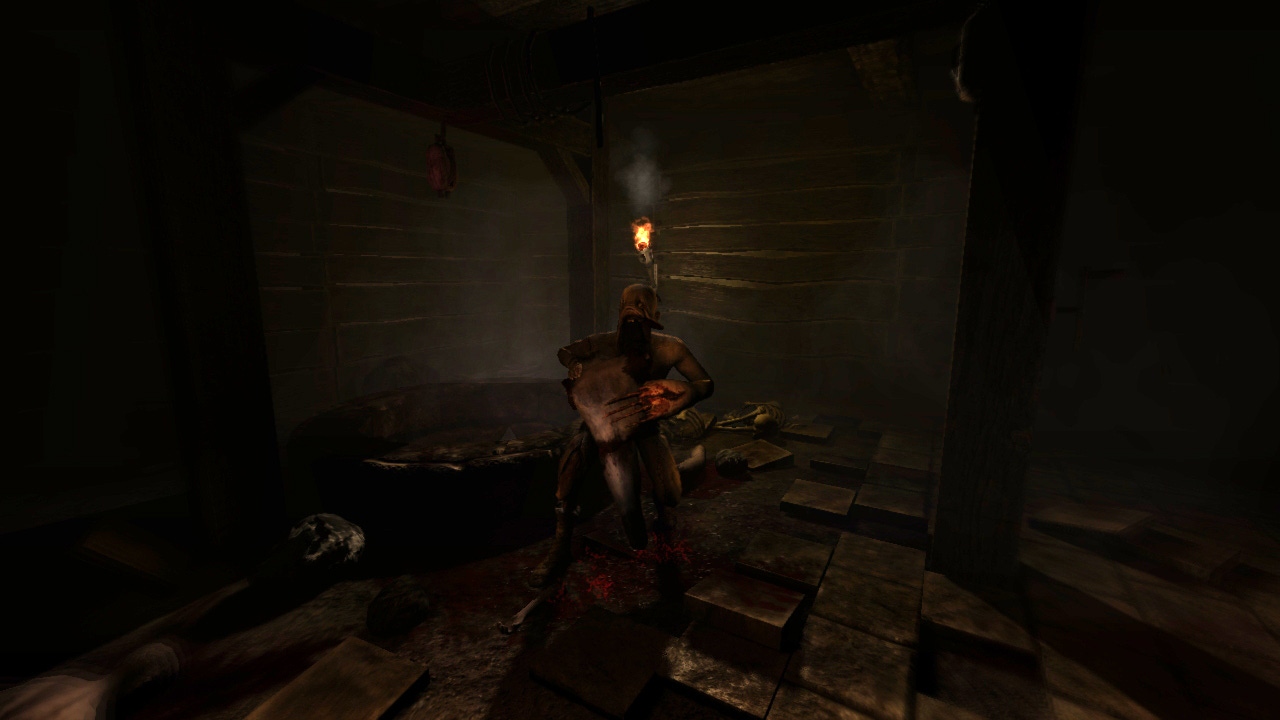Trending
Opinion: How will Project 2025 impact game developers?
The Heritage Foundation's manifesto for the possible next administration could do great harm to many, including large portions of the game development community.
Frictional Games' Thomas Grip explains how considering what players assume about features can sometimes matter more than the actual features themselves.

- Thomas Grip discusses the relationship between game mechanics and player experience.
Amnesia: The Dark Descent made use of a ‘sanity meter’ that, after players were exposed to prolonged darkness or disturbing imagery in-game, would gradually decrease and start affecting the appearance of the world around them.
But, as Frictional Games creative director Thomas Grip explains in an interview with Ars Technica, most of the urgency around that meter is entirely in players’ heads.
There’s no failstate relating to the sanity meter in the game, but Frictional Games went out of its way to obscure that fact from players. Instead, implied urgency (and an outright lie or two) were used in-game to make players conscious of their current sanity status, without bringing up issues of balancing fear with difficulty that sprung up in earlier builds of the game.
“We had a sanity meter, we had some sanity effects, and then there was no real fail state, and it worked better," he says. "Then we don't really say what the consequences are for this but the player assumes if you're gonna lose your mind I'm not gonna be able to play him, he might die, he might, you know, be harder to control, he might attract the attention of monsters and so on and so forth.”
It’s a system Grip explored in depth in a Game Design Deep Dive on Gamasutra a few years ago, and a feature he tells Ars Technica helped to change the way he approached the relationship between game mechanics and player experience in later games.
“It was how we shape the player experience, like in Soma we wanted the story to be about something a bit deeper than just scaring the player, and had we not done Amnesia before it, we would not have the ideas and even the language to speak about it,” Grip tells Ars Technica.
“At this point, we started to think about things in what's in the systems, and what's in the player's mind, and that sort of thing, whereas before system and player's mind was basically the same. After Amnesia we learned how to split them, and we learned how to use that to our advantage.”
You May Also Like